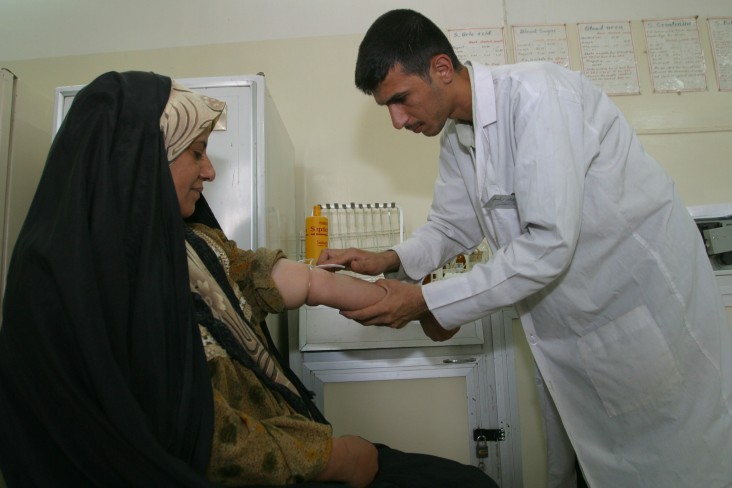
Iraq’s health care system was once considered to be one of the best in the region. After decades of dictatorship, conflict, and isolation, however, the health care system has deteriorated significantly. The country has some of the worst health indicators in the region, almost as bad as those of Yemen, the poorest country in the Arab world.
USAID is working with the Iraqi Ministry of Health through primary health care clinics to improve the quality and delivery of services, improve management systems in the clinics by advancing quality standards and operational guidelines, strengthen the capacities of health administrators and health professionals, and establish community partnerships that can collect feedback to determine the types of health services that individual communities need. The project includes strengthening women’s positions as health care providers and as community members and volunteers to support women-to-women networks. Through this project, USAID supported the Iraqi Ministry of Health to identify women’s health related guidelines and protocols that need to be brought up to international standards in order to begin improving Iraq’s overall health indicators. It is expected that this will have a positive impact, for example, on Iraq’s maternal mortality rates, the highest in the region.
The Ministry of Health and USAID worked together on an assessment of the primary health care system to identify its strengths, gaps in quality, and priorities. The assessment will serve as a basis for monitoring and improving the primary health management system, clinical practices, and community involvement.








Comment
Make a general inquiry or suggest an improvement.